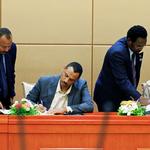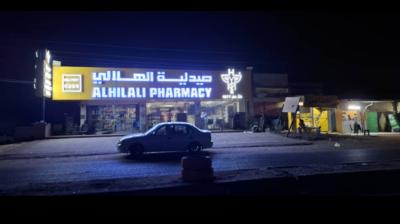New trends in constitution making: Lessons for Sudan
The search for a permanent constitution has haunted Sudan throughout its post-independence in 1956. For the third time in its history a dictator has been ousted by the people, and the country has the opportunity to set the terms for transition to constitutional democracy.
Constitution making is as old as the modern nation state, and its normative and practical aspects follow a similar trajectory. Recent times have seen the rise of the concept of “new constitutionalism”. Here, public participation has taken center stage, and the making of the constitution is no longer seen as a single, decisive moment. Instead, the new constitutionalism endorses a flexible, incremental, and multi-stage approach to set the time and space to overcome existing conflicts and to reconciliate between competing forces and claims
Participation of the people has become a prevalent maxim both in national and international forums. There are at least two major arguments in defense of the participation: 1) It increases legitimacy. 2) Constant public input may induce the elites to pay attention to general tendencies and demands in the society and improve the draft for that purpose. The opponents on the other hand, argue that public involvement in the divided polities may cause polarization and exacerbate the tension related to political, ethnic, or religious identity, and point to the risk of public disinformation in societies with little or no democratic experience. There is a potential cure though: Establishing channels and forums for healthy discussions, ideally also keeping a civic education perspective in mind.
Inclusion and Reconciliation
Including marginalized groups, including women, from all parts of society is the backbone of a genuine participatory process.
The need to include is not limited to marginalized and persecuted groups. To succeed, one has to find ways of also including members of the incumbent or withering-away old regime. For example, constitution making processes, in post-communist Central and Eastern Europe and in South Africa, included negotiations with the incumbent authoritarians.
Including marginalized groups, including women, from all parts of society is the backbone of a genuine participatory process.
A balance should be set between the urge for justice and rehabilitation of the society in its entirety. Old regime actors particularly who still wield power may be given exit guarantees in exchange of their support for the new constitution. This may be to the dismay of the marginalized and persecuted groups. In that case, it is good to remember that redemption does not necessarily mean immediate retribution; and there is a whole experience and knowledge of transitional justice to set this balance.
Either way, transparency (while avoiding any pitfalls linked to grandstanding and vanity as political leaders seek to mobilize their own supporters) throughout the process and monitoring by social and political actors are indispensable elements for democratic constitution making.
But neither ideas nor promises can guarantee an inclusive constitutional process. To ensure that any promise of public participation and transparency materialize, Sudan needs to dive into a very specific and practical tool box.
Sudan’s tool box
Round Tables
Roundtables maybe useful when a polity is trapped in a constitutional standoff: The old regime has lost considerable legitimacy and support - and is unable to suppress the revolutionary forces. The revolutionary forces, on the other hand, are not strong enough to go all the way and fully depose the old regime. This was the case, for example, during the post-communist constitution making in eastern and central Europe and post-apartheid South Africa. At that point, negotiation was the common way of shaping the constitutions and/or the procedural ways by which the constitutions were made. We see a similar pattern in Sudan. Bashir was ousted and Islamist parties banned, but the transitional government includes both a civil and military component and the military leaders have been longstanding supporters of Bashir and instrumental in oppressive and violent human rights abuses and war crimes.
The revolutionary forces, on the other hand, are not strong enough to go all the way and fully depose the old regime.
One caveat of the round table formula is that it lacks legitimacy since it is not formed by election but by co-optation of the representatives of the competing forces. Keeping this in mind, roundtable talks and ensuing constitutional document should be temporary and should ideally leave their places to more participatory and democratic processes.
Public participation and input
There may be several forums for public participation and input before or during the constitution drafting process. For example, dialogue forums of national conferences, convened by political leaders, were largely used in Benin, Ghana, Kenya and Mali. In most of the cases the public participation served both to collate the views for the subsequent drafting process and educating the population about the constitution. For this purpose, In Bolivia the constituent assembly formed committees to organize public meetings. In Uganda, an independent commission worked for that purpose. Civic education is another aspect of this participation. In South Africa, Rwanda and Eritrea many interactive teaching methods using entertaining elements and community outreach were used for this purpose. It is important to note that the operation of this phase should be cleared from the authoritarian elements of the old regime.
Drafting Assembly
To carry out the drafting process, there should be a deliberative body (constituent assembly) freely elected by the citizens. The elections should be carried out according to the principles of universal suffrage, equality of votes (one man-one vote) and secret vote and open counting and tabulation. To secure optimal representation, the vote should be held according to the system of proportional representation.
Calendar
Should the finalization of the process have a deadline? We may find many different examples in this regard. At one extreme, there is Myanmar’s constitution process which was carried out mostly behind closed doors and took 17 years. At the other extreme we have Japan; following its defeat in the WWII, the constitution was written in about a week, and the whole process was completed in eight months.
A balance should be reached between these two extremes. If too short, the public and relevant democratic actors may not have enough time to deliberate and improve the text. If too long, the public may lose its interest in the process and authoritarian forces may resume control.
Of course, every society should adjust this timeline considering its needs and internal dynamics. In post-conflict situations this time may be stretched a bit. Remember that it took South Africa seven years to make its permanent constitution. But in that period, there was an interim constitution and a constitutional court that reviewed the daily state activities as well as the content of the new permanent constitution.
Referendums
The use of referendums in enhancing the legitimacy is a common practice in constitution making processes. However, referendums have a few pitfalls: A referendum is, by its nature, a majoritarian tool and may cause polarization by demoting complex constitutional problems to a yes-or-no question, or to a take-it-or-leave-it offer.
Referendums should not be hastily used in the initial phases, but rather as the final stage of public approval. It should be a complementary and finalizing element of a more complex pattern of conflict resolution including negotiations, agreement on an elite and grassroots level and interim agreements.
Referendums should not be hastily used in the initial phases, but rather as the final stage of public approval.
Indeed, experience shows that premature referendums have caused instability and a deepening of a constitutional conflict. For example, in East Timor, the independence referendum was held with a very tight schedule; and because a progressive phase of autonomy had been rejected by international actors. This referendum caused the bloody violence by pro-Indonesian militias against independentists. In Cyprus, the unresolved international status is due to the then UN Secretary General Kofi Annan’s impatience to hold a referendum in 2004, before key issues could be resolved. And the successful case of South Africa shows that patience can pay off. Here the political leaders rejected a premature referendum and preferred a patient and thoroughly debated constitutional package.
Sudan’s negotiators are well advised to remember that referendums do not serve for legitimacy if other modes of public participation in the preceding stages are absent. If the public is excluded from the drafting process, a last-minute referendum will not cure this legitimacy deficit.
The way forward for Sudan’s constitutional process
The 2019 Constitutional Charter for the transitional period, which was a negotiated result between the Transitional Military Council and the Forces of Freedom and Change, focuses on transitional justice rather than creating a practical framework and a procedural road map for Sudan’s permanent constitution. Another major weakness is that it does not secure the separation of power and rule of law during the transitional period. The official head of state is the Sovereign Council consisting of military, armed groups and civil actors, meanwhile the legislative and the constitutional court do not have enough entrenched guarantees. The military actors of the Sovereign Council enjoy immunity, but are simultaneously known war criminals responsible for genocide and massacres.
The Juba Agreement changed nine provisions of the Charter, including the possibility for armed forces to run for office in the elections scheduled for 2024. Although there are serious attempts to improve the procedural aspects of constitution making in the Juba Peace Agreement by adding public consultations through regional and national conferences, it does not say anything about how the results of these conferences will be translated into the constitutional text. The details of election and operation of the drafting assembly; and final ratification of the constitution (by referendum or by the drafting assembly) are also missing in the current legal framework. By contrast, much detailed content of the future constitution (i.e asymmetric federation, equality, religion and transitional justice) has been decided by these peace negotiators in Juba, which is problematic for several reasons. These peace negotiators do not enjoy democratic legitimacy, yet they have amended the Constitutional Charter and even included a supremacy clause stating that in the event of any inconsistency between the Charter and the Juba Peace Agreement, the text of the Juba Peace Agreement will prevail. This is despite the stipulations in the 2019 Charter saying that only the Legislative Assembly, which is yet to be convened, has the authority to amend the constitution. Additionally, the Juba peace negotiations have not been inclusive. They have followed the historical pattern of peace negotiations in Sudan; which is basically a conversation between the government and rebel groups. This means that other actors, including civil society and women, have been largely marginalized in the discussion of Sudan’s future. Although the strong emphasis on transitional justice in the Juba Peace Agreement is justified and necessary for creating a free and democratic constitutional order, it is obviously not a process that military actors within the transitional government is particularly keen on. Added to that the lack of detailed procedural guarantees for the constitution making process brings the danger of authoritarian forces’ resuming power and control. Too much passion for what to do, but too little care for how to do it. That may be the greatest pitfall of Sudan’s on-going constitutional process thus far. But there is still time to set the precise details of a truly participatory framework to set Sudan onto a new civilian and democratic path.



